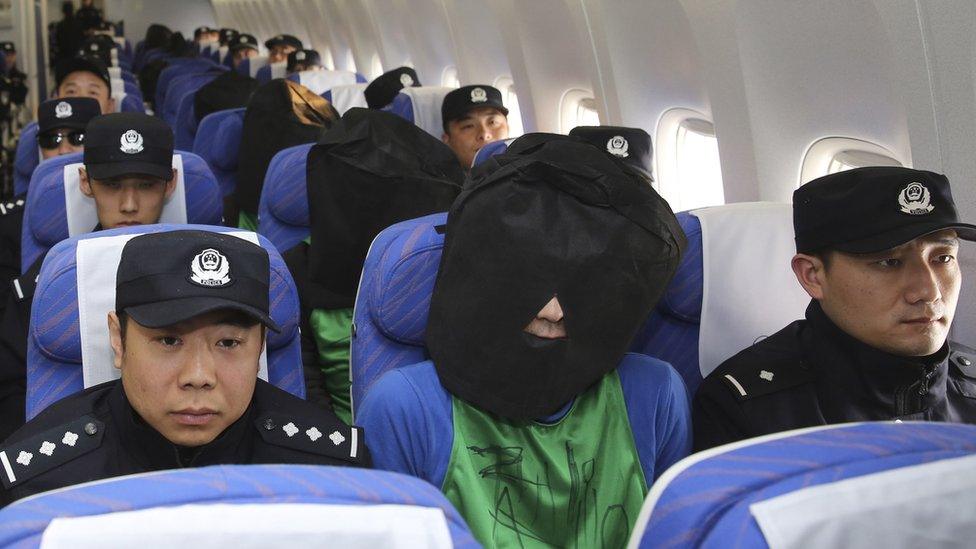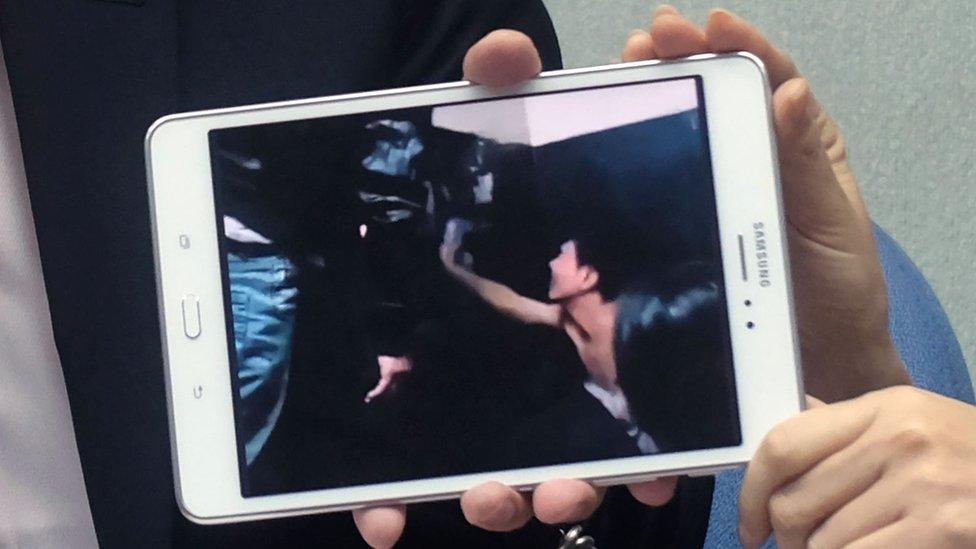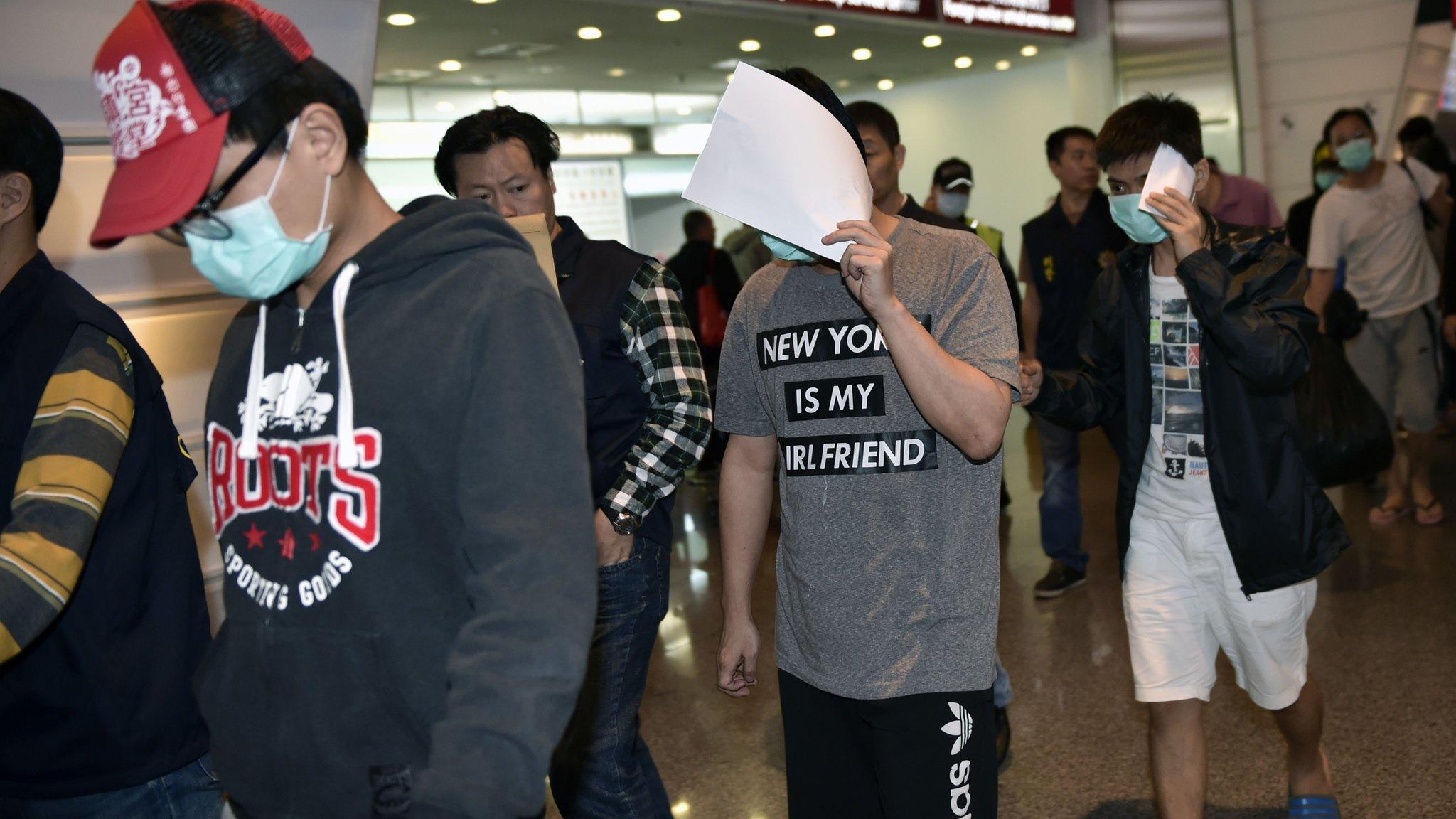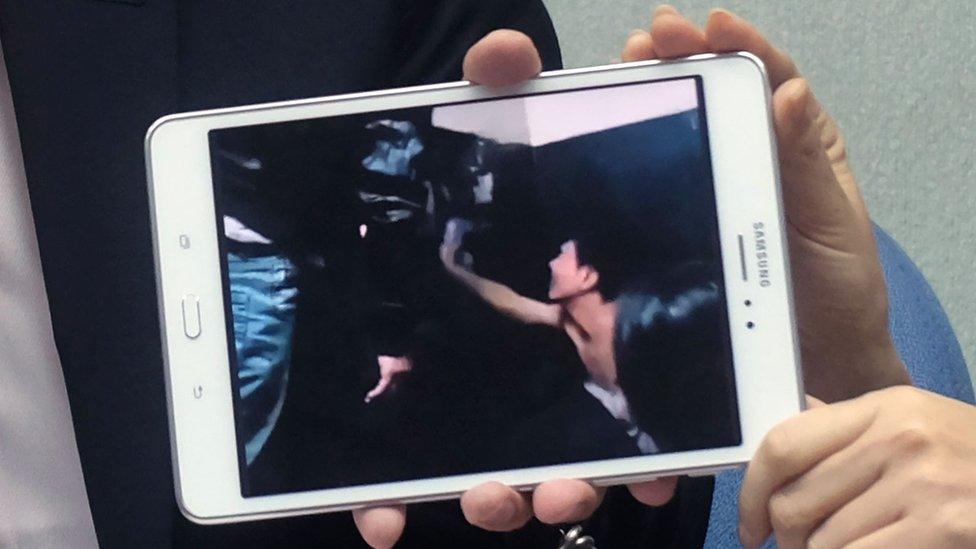The massive phone scam problem vexing China and Taiwan
- Published

The phone scam has reportedly cost mainland Chinese victims billions of yuan
A recent diplomatic row between Taiwan and China has cast light on a massive international telecoms fraud problem.
It is said to involve thousands of scammers, some of them pretending to be government officials to extract money from victims.
The scam has reportedly cost mainland Chinese victims billions of yuan and to have driven some to suicide.
Earlier this month a group of suspects, including Taiwanese, were deported from Kenya to China, angering Taiwan.
On Friday, Chinese officials said those 45 Taiwanese suspects will face trial on the mainland, refusing Taiwan's request they be sent back to Taiwan.
How big is this fraud?

A group of Chinese and Taiwanese suspects were deported from Kenya to China earlier this month
Both China and Taiwan have for several years been pursuing suspects in what appears to be a huge scam operation, in terms of both scale and spread.
In comments released to state media, China's public security ministry said it believed the scammers were operating mostly out of South East Asia, Africa and the Pacific Islands. Besides the Kenya case, there were also recent arrests in Malaysia.
The officials claimed to have arrested 7,700 telecoms fraud suspects, of which about 4,600 are Taiwanese, in South East Asia in the past seven years - since they signed a formal agreement with Taiwan to jointly tackle crime.
Many of the other suspects are said to be Chinese.
The scammers have made staggering amounts of money - one of the worst cases saw a person in Guizhou city tricked out of 117m yuan (£12.6m; $18m) last December.
Many of the victims are elderly, along with teachers, farmers, manual labourers, and students. Officials added that the scams had bankrupted families and businesses, driving "many victims" to suicide.
What are the scammers doing?

Victims are contacted over the phone or on popular messaging apps like WeChat
It has been difficult to ascertain if the criminals belong to the same ring or are separate syndicates, but their techniques have been similar.
They usually contact victims over the phone or on popular messaging apps like WeChat and QQ, and their main ruse involves pretending to be a public security official telling the victim he or she is suspected of money laundering and needs to transfer more money for investigations.
Other methods reported , external(in Chinese) include scammers pretending to be insurance agents or employees of online shopping sites.
In February, China's public security ministry released a warning to the public listing 48 types of telecoms scams, which also include hacking victims' messaging accounts to obtain their banking details.
Why is it causing controversy now?

Earlier this month Taiwanese reporters were given a video clip allegedly showing the Taiwanese suspects under detention by Kenyan authorities
The Chinese authorities' comments indicate that previously, when suspects were nabbed for committing crimes in a third country, both sides would separately deal with their own suspects.
But now Taiwanese suspects have been deported to the mainland, instead of their home, to face charges. This has angered Taiwan, which has accused China of "extrajudicial abduction".
China regards Taiwan as a breakaway Chinese province not an independent country.
It insists it has jurisdiction over the Taiwanese as their suspected victims have all been mainland Chinese.
It also claims that in many cases, Taiwanese suspects often go unpunished by Taiwanese authorities and the scammed amounts thus cannot be recovered.
Earlier this month China criticised Taiwan for releasing a group of Taiwanese suspects arrested in Malaysia.
Correspondents say the dispute is likely to sour already strained cross-strait relations.
The move by China is also seen by some as yet another sign of heavy-handedness, after the recent suspected abductions of five Hong Kong booksellers.
- Published17 April 2016

- Published13 April 2016

- Published12 April 2016

- Published11 April 2016

- Published25 March 2016
